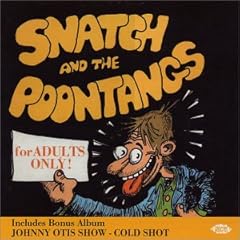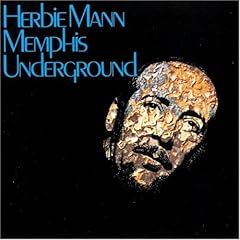
I was listening to Sounds of 69 by Crazy Baldhead today, which is an album of covers of songs originally released in 1969 given the Crazy Baldhead reggae treatment, and it got me thinking that 1969 was a great year for music. I started flipping through my collection and realized just how great a year it was. I decided to make a post about a few of my favorite albums which turned 40 this year that Agent Jay didn't cover songs from.
MC5- Kick Out The Jams

The MC5 were part of the (un)holy trinity of proto punk bands including The Velvet Underground and The Stooges (both of which released classic albums in 1969 but aren't being discussed in this article because Crazy Baldhead covered a song from both of them). Kick Out The Jams was the MC5's debut album and cemented them as total badasses not only because the album kicks ass but because they debuted with a heavy, loud, LIVE album. The album is THE prime example of what an MC5 show was like when they were at their loudest. This band did everything that rock bands weren't doing or were too afraid to do at the time. Their political affiliations were more than radical. Joh Sinclaire, leader of the White Panthers,a companion group to the Black Panthers which consisted of white people assisting their cause, gives a speech at the opening of this album. They were doing blues and r&b covers ("Motor City's Burning" by John Lee Hooker, and the r&b standard, "Ramblin Rose") which was not too out of the ordinary for their "hard rock" contemporaries but crediting one of their songs to Sun Ra because they borrowed the lyrics from one of his poems is not something many rock bands were doing and still isn't something I've ever heard of a rock band doing. They also opened the first track on the album with a call to arms for everyone who knew what was what and which horrified everyone who didn't: "KICK OUT THE JAMS, MOTHERFUCKERS!"
Johnny Otis- Snatch and the Poontangs/Cold Shot

Johnny Otis is an R&B pioneer. He also happens to be white but that never stopped him. He grew up in a black neighborhood of Berkeley and gravitated towards "race music." When he was younger it was swing. Eventually he fell in love with rhythm and blues and became completely intertwined with the genre despite being one of the very few white men involved in it. A few of his accomplishments include many #1's on the R&B charts, discovering Etta James, and producing Big Mama Thorton's "Hound Dog." By 1968 the hits had stopped coming in and he was getting a little old (47 to be exact) but that didn't stop him from putting out two amazing albums that year, Cold Shot and Snatch and the Poontangs. Musically they are both very similar albums. They are blues raveups, updating that R&B sound that Johnny had made his mark playing all those years. Lyrically, however, they are worlds apart. Cold Shot is a straight ahead blues album, whereas Snatch and the Poontangs, as the name suggests, is filthy, raw, X-rated blues. Not only is the music incredible but the songs are hilarious. It should also be mentioned that featured on both albums is Johnny's 15 year old son, Shuggie, who plays the blues so well he rivals some of Hendrix's best blues playing. Shuggie would go on to become a cult hero in his own right, releasing 3 solo albums, Here Comes Shuggie Otis, Freedom Flight, and Inspiration Information, and playing guitar on Al Kooper's Super Sessions follow up called Kooper Sessions.
*Both of these albums plus two bonus tracks from the Snatch and the Poontangs album sessions were compiled onto one CD.
Herbie Mann- Memphis Underground

In keeping with the theme of incredible albums made by white guys in a predominately black genre, here we have Herbie Mann with the soul jazz classic, Memphis Underground. On this album are jazz legends Roy Ayers playing the vibes, Larry Coryell on guitar, and Sonny Sharock also on guitar. The band is rounded out by the Memphis rhythm section. This album is Herbie Mann's tribute to soul music. 3 of the 5 songs on the album are soul covers ("New Orleans" originally recorded by Gary U.S. Bonds, "Hold On, I'm Comin" originally recorded by Sam & Dave, and "Chain of Fools" originally recorded by Aretha Franklin). Of the remaining 2 songs, "Memphis Undergound" is a Herbie Mann original and "Battle Hymn of the Republic" is a traditional song arranged by Herbie Mann. The musicianship is incredible and the grooves are tight. Once you hear Sonny Sharock's guitar solos you'll understand that this is more than just a jazz album and more than just a soul album.
Frank Zappa- Hot Rats

This was Zappa's second solo album, the first being the incredibly experimental Lumpy Gravy. It is also Zappa's first album of jazz compositions (not his first foray into jazz however, as he was composing classical and jazz before forming The Mothers). This is not your father's jazz album though. This is jazz fusion as only Zappa could do. The band features Zappa on guitar, octave bass, and percussion and Zappa regular Ian Underwood playing piano, organ, flute, all clarinets, and all saxes. Beyond that the musicians are not the same for each song but feature special guests Captain Beefheart lending his vocals to "Willie the Pimp", Jean Luc Ponty playing violin on "It Must Be A Camel", and the aforementioned Shuggie Otis playing bass on "Peaches En Regalia" This is the first installment of what has come to be known as Zappa's jazz trilogy which also includes Waka/Jawaka and The Grand Wazoo. This album is much more rock oriented the the other two, especially in Zappa's guitar playing and his solos.
Chicago- Chicago Transit Authority

When people think of the band Chicago, they think of the pop songs such as "Saturday in the Park" or "Just You N' Me." While I still enjoy those songs for what they are they couldn't be farther, stylistically, from what this band started out as. They formed in 1967 in Chicago and then moved out to Los Angeles and signed to Columbia who released their self titled debut album, which also happened to be a double LP which was just as unheard of as debuting with a live album. The band has 7 members including trumpet, trombone, and various woodwind instruments. 5 of the 7 members share vocal duties. All of the 7 members of the band were amazing musicians but one should have been a legend. Guitarist Terry Kath should be a household name mentioned in the same breath as Jimi Hendrix, Eric Clapton, and Jimmy Page. In fact, in the liner notes, sax player Walter Parazaider recalls playing a show at the Whiskey in L.A. before the album was recorded and having Jimi Hendrix come up to him and say, "Your horns are one set of lungs, and you know your guitar player is better than me." Kath's genius is all over this album in his incredible solos on "Introduction," "Listen," "Poem 58," "South California Purples," "I'm a Man," and "Liberation." But where he really shines is his epic "Free Form Guitar." The song clocks in at just under 7 minutes of what some would call noise and feedback but I call it guitar virtuosity. In those seven minutes Kath gets sounds to come out of his guitar you've never heard before and yet as a whole, it works surprisingly well as one piece of music. This album is full of heavy songs with a heavy R&B influence. My favorite thing about this album, however, is playing it for people who have never heard it. When they hear I want to play them a Chicago album they're usually surprised and don't want to say no but don't believe me when I say it's going to blow their mind. As soon as the horns kick in on the first track, "Introduction," and Terry Kath starts singing in his bluesy growl it always blows their minds.






No comments:
Post a Comment